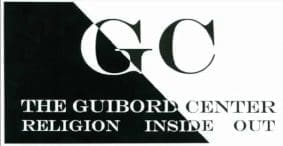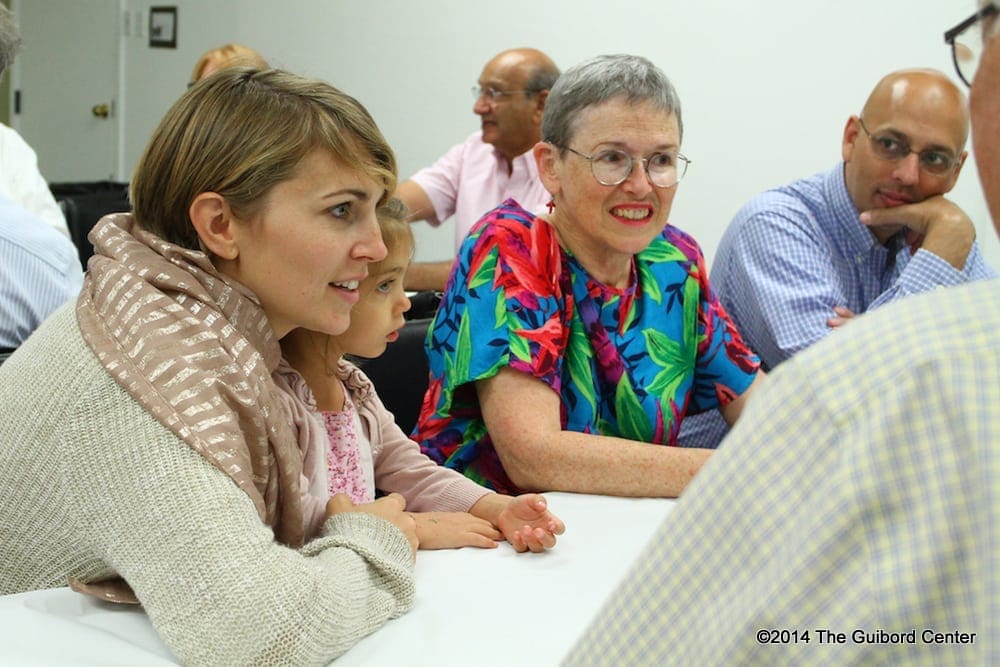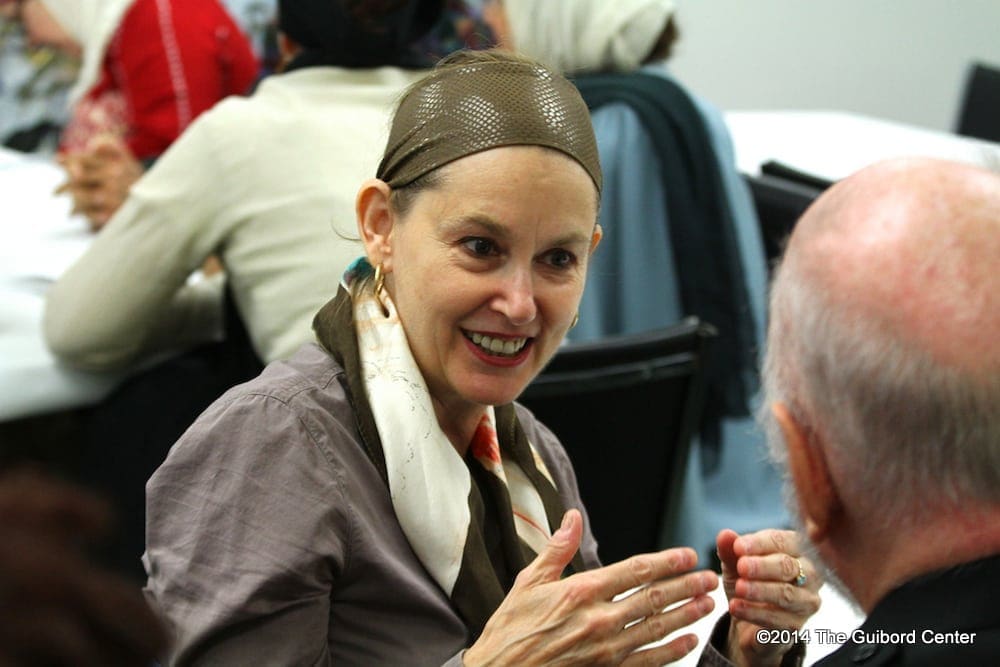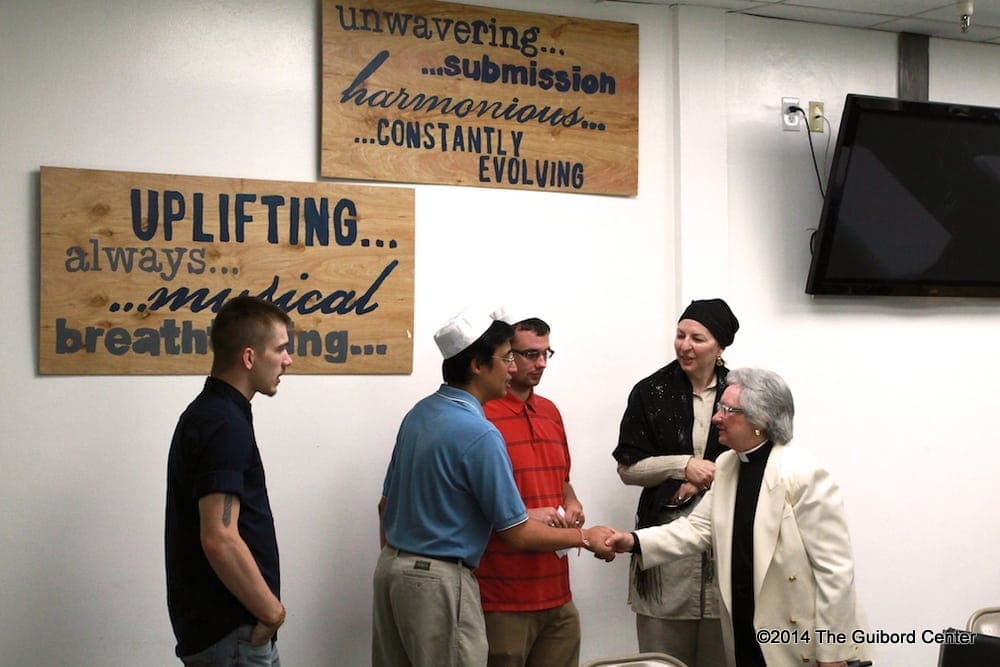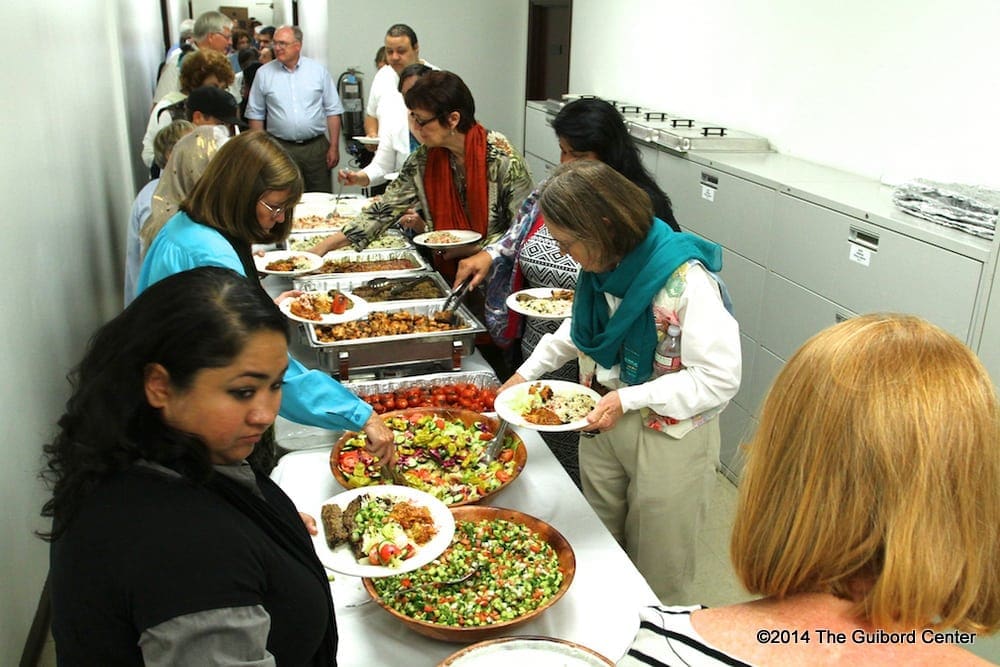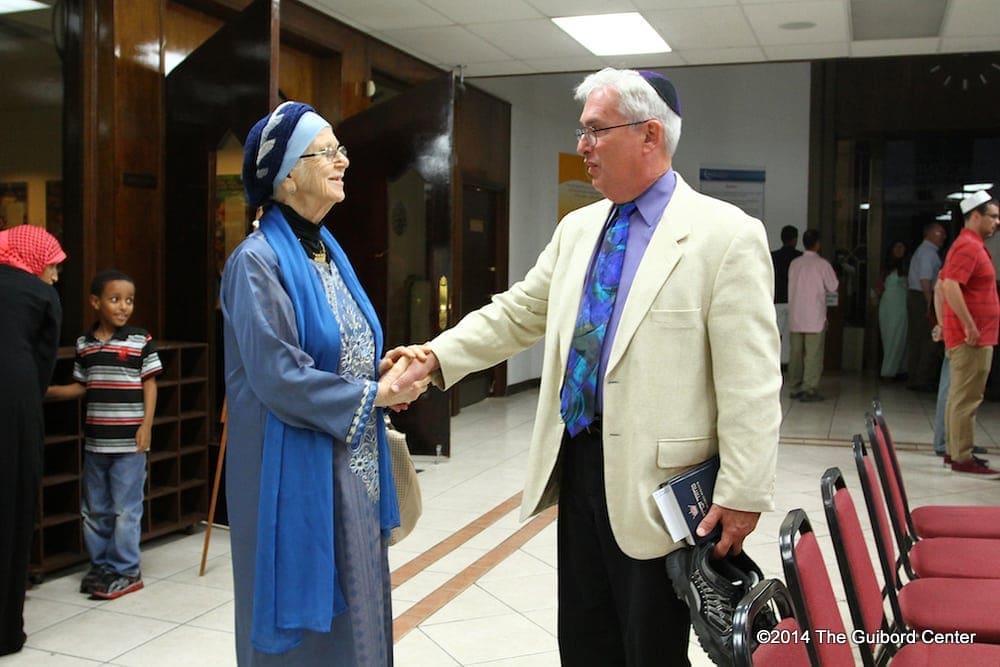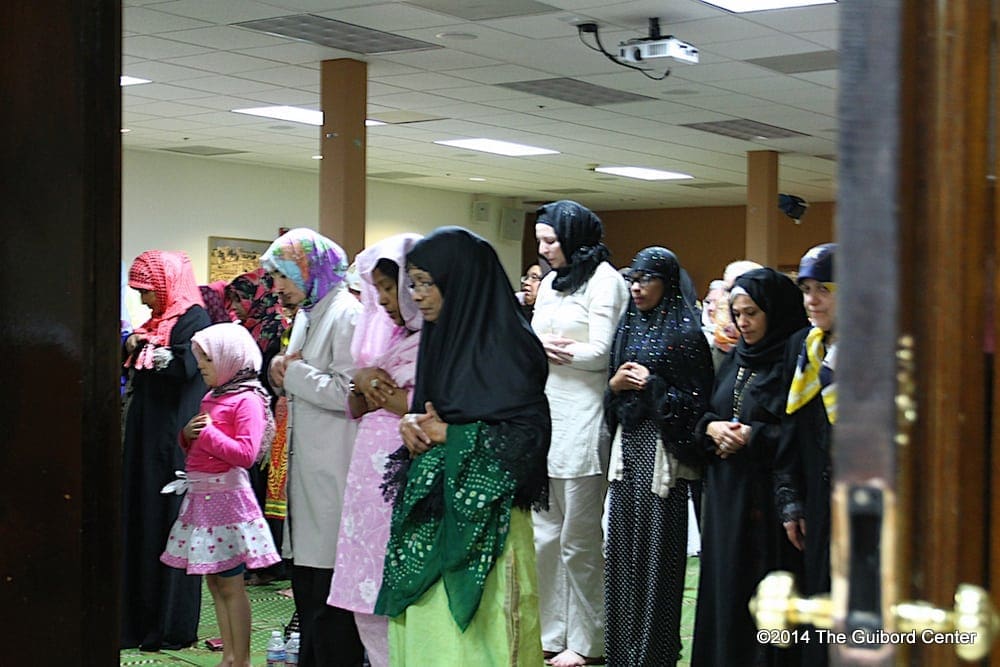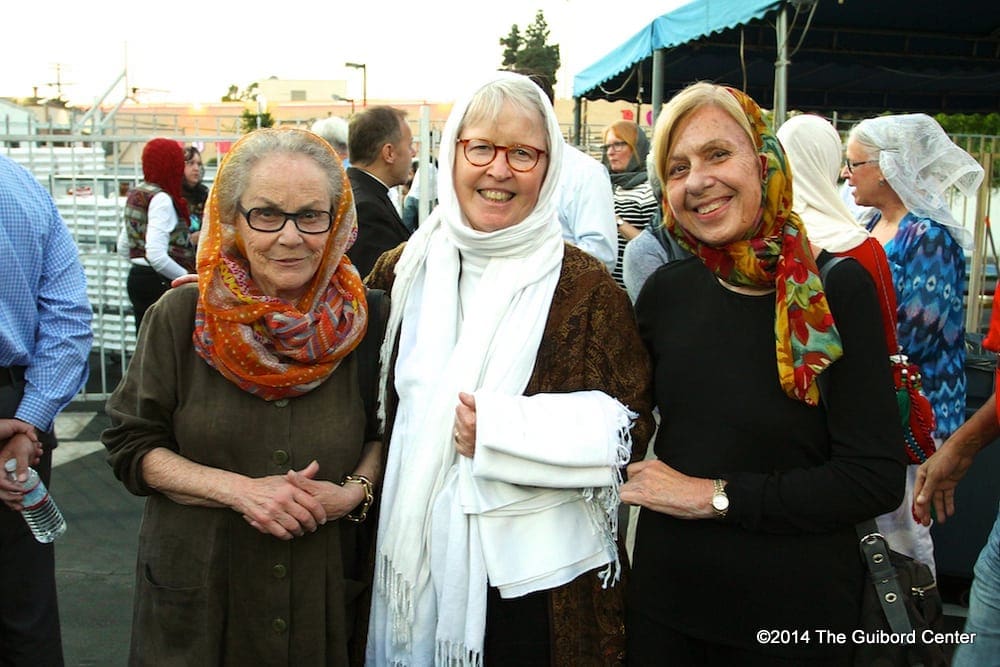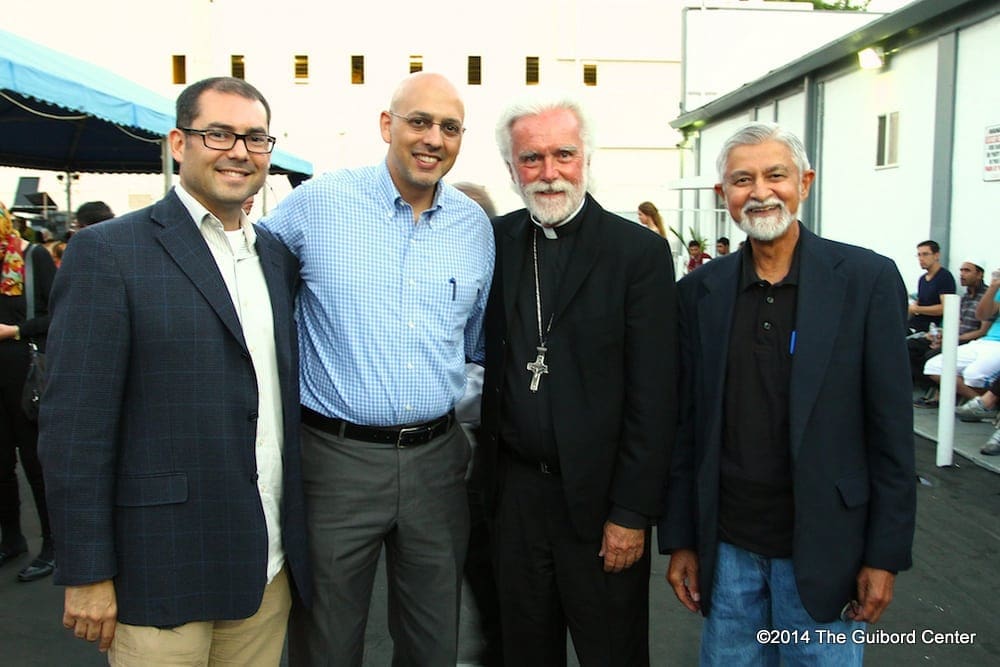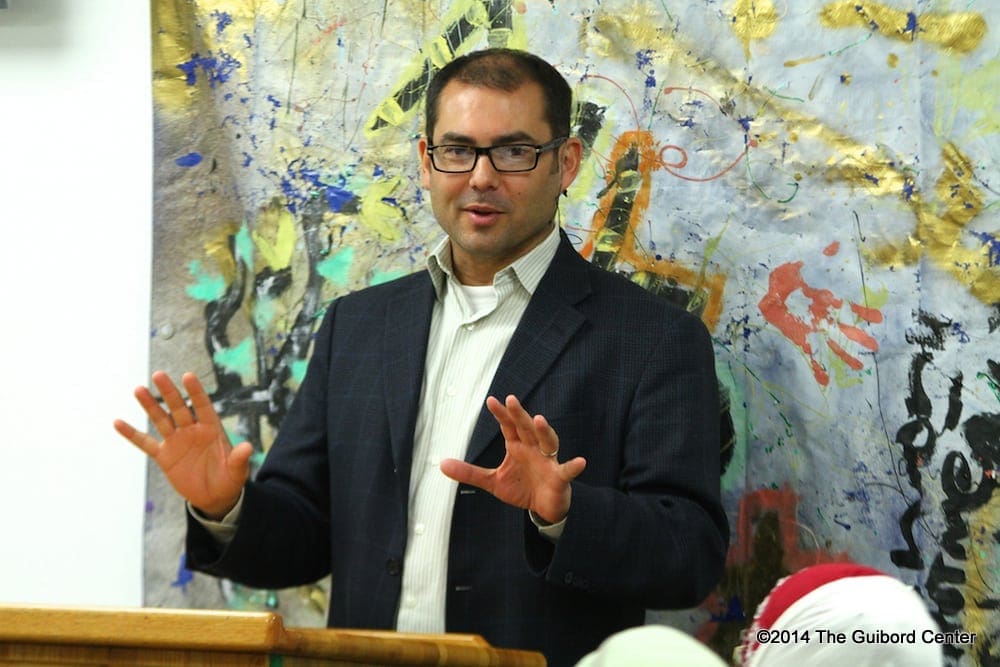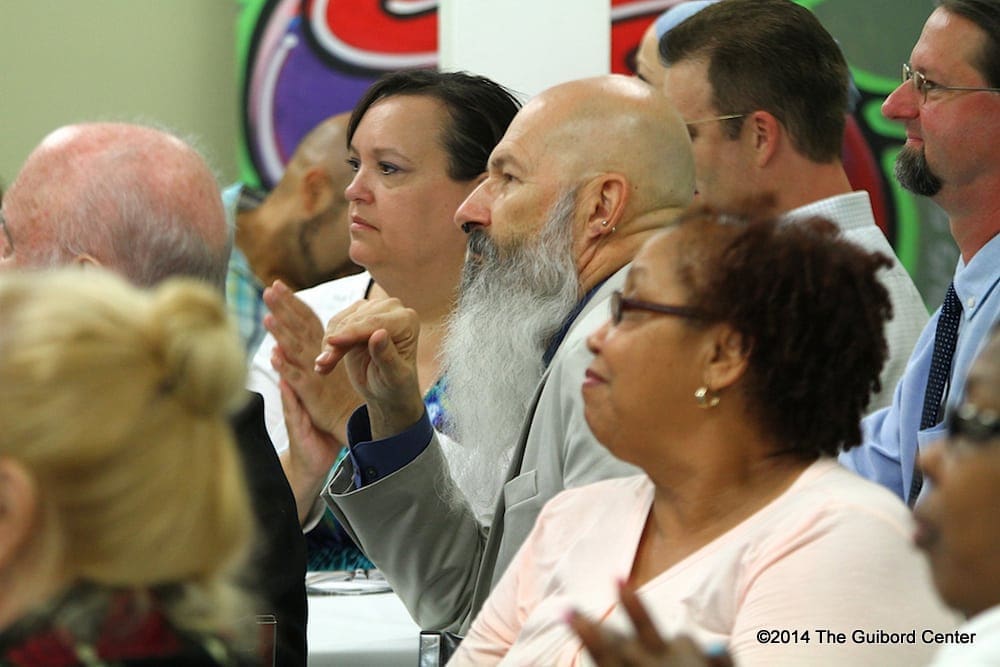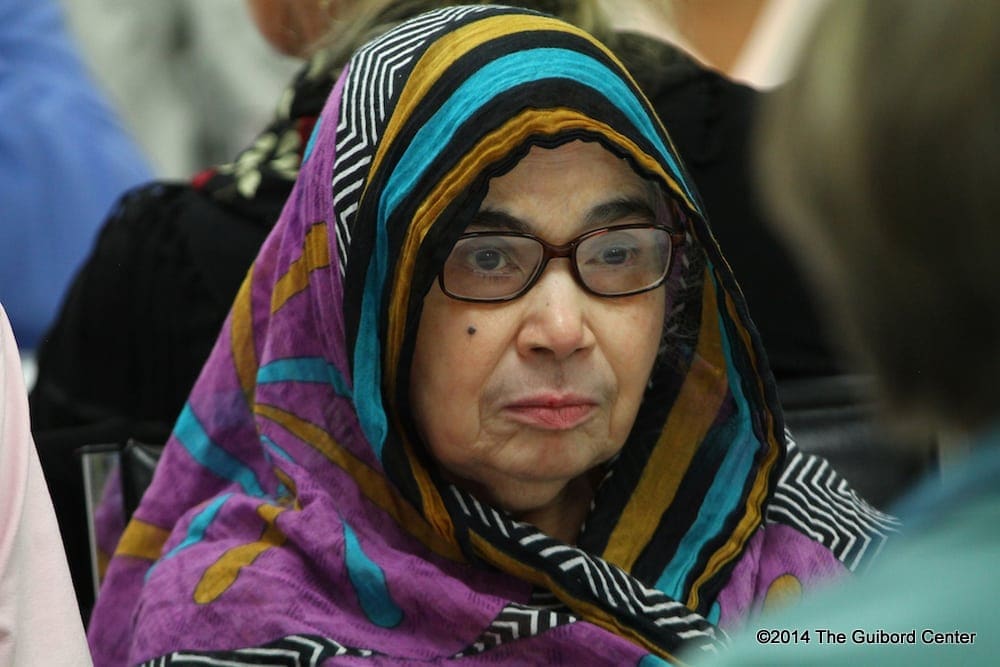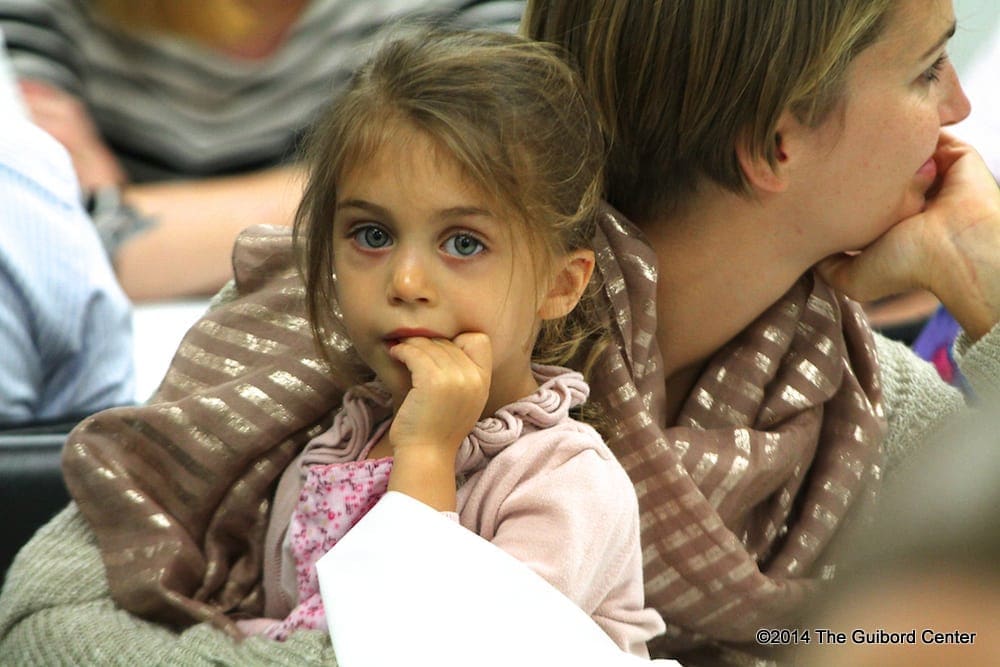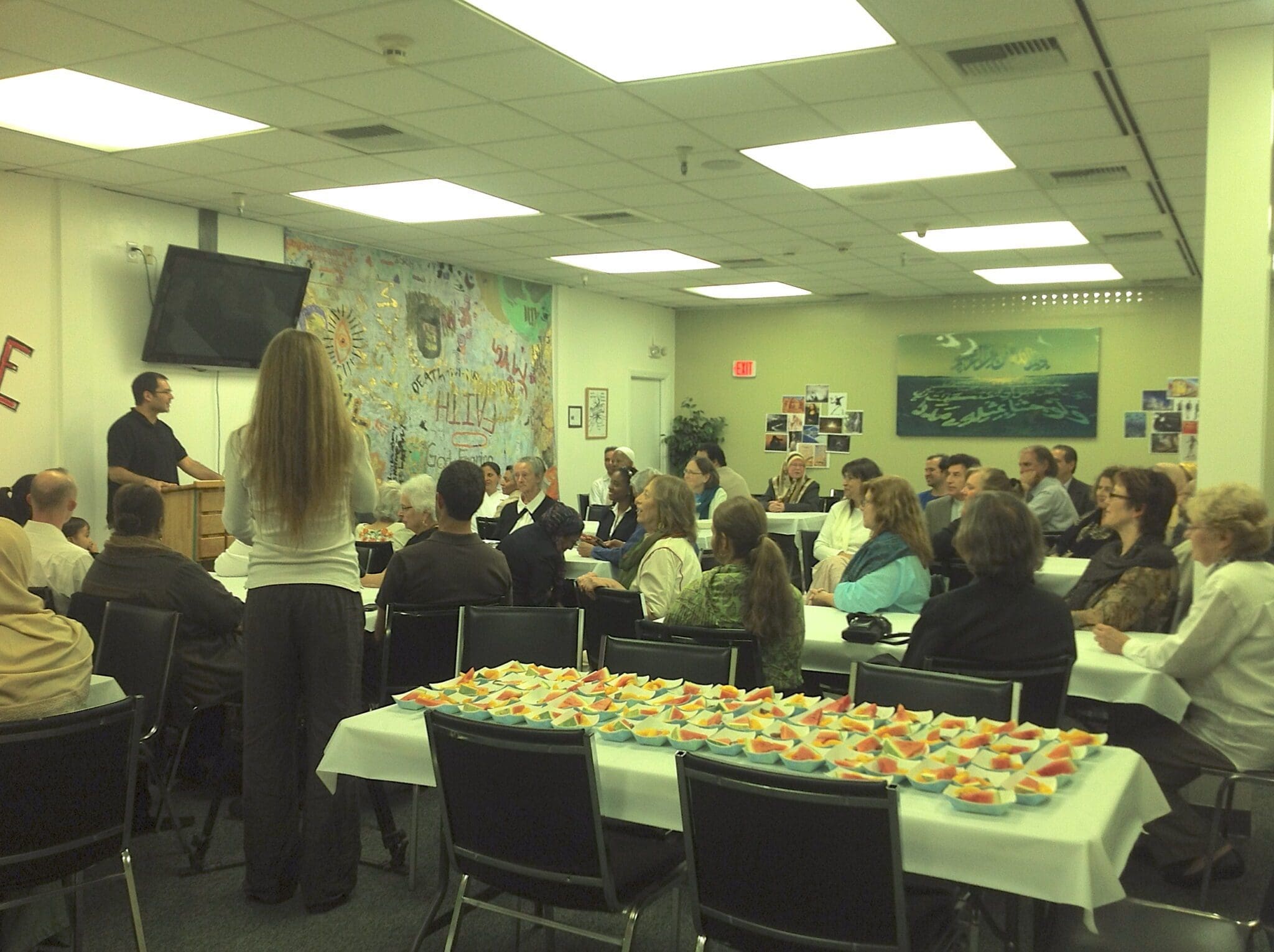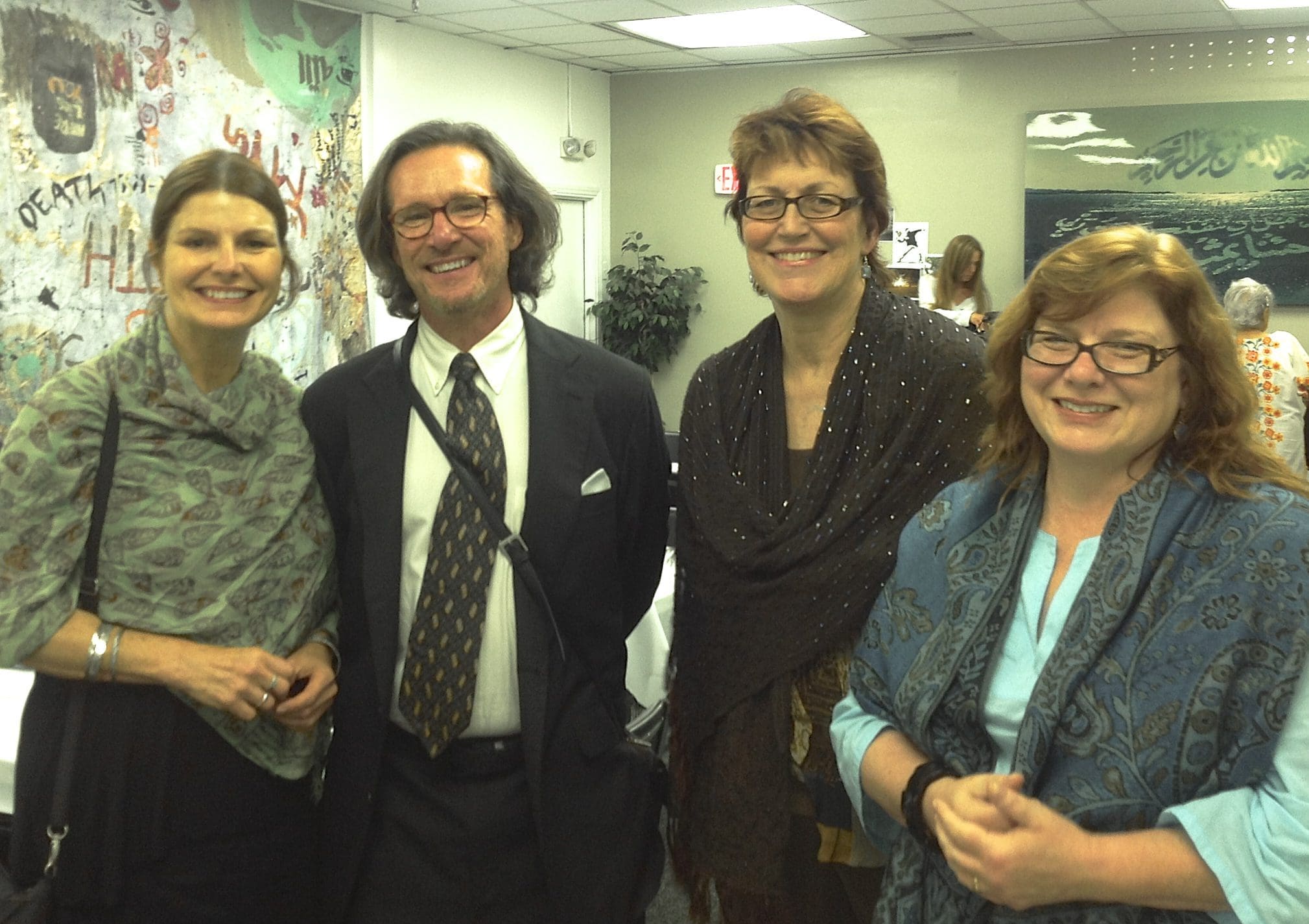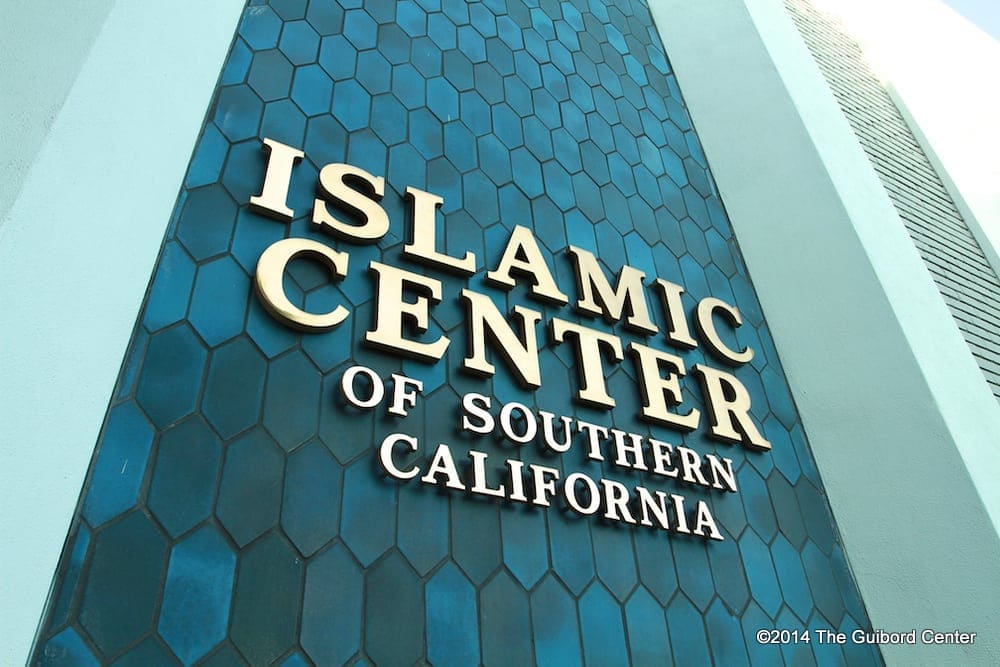
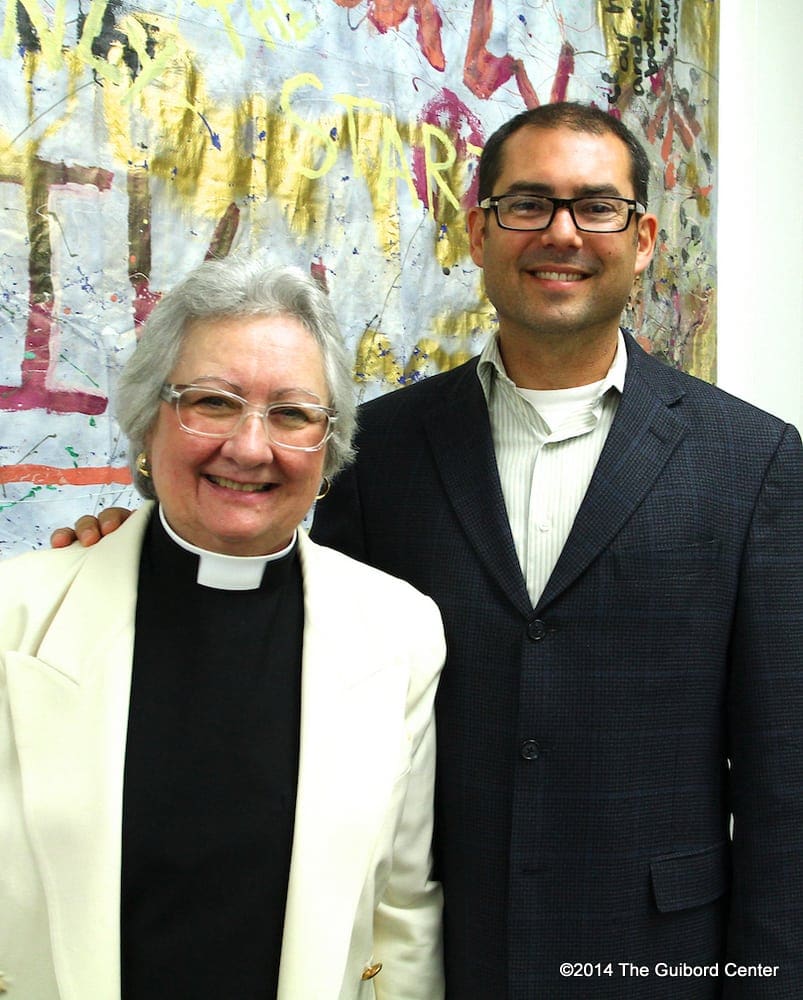
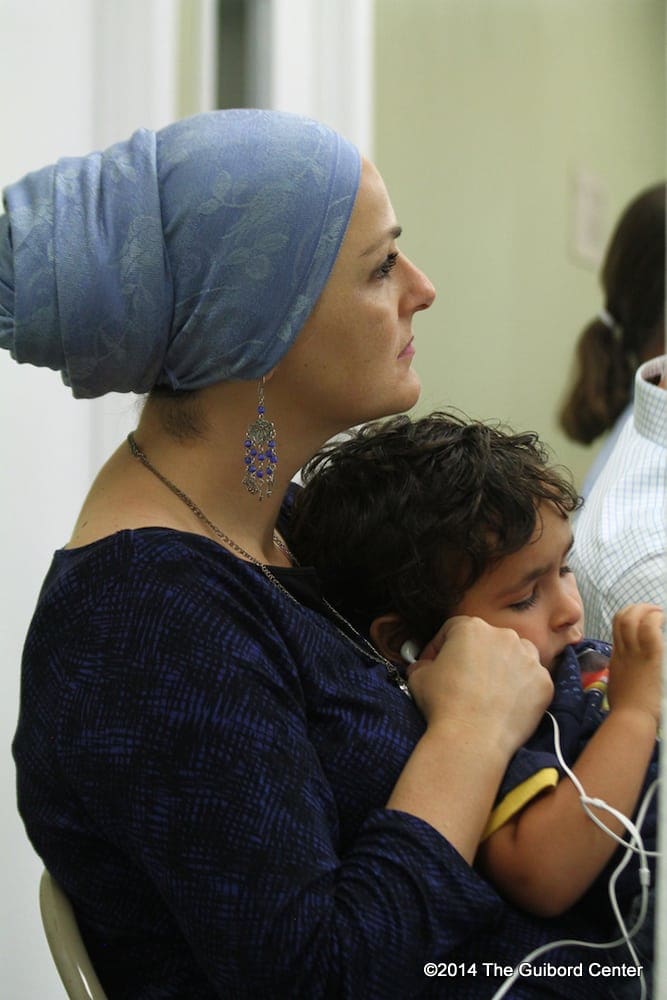
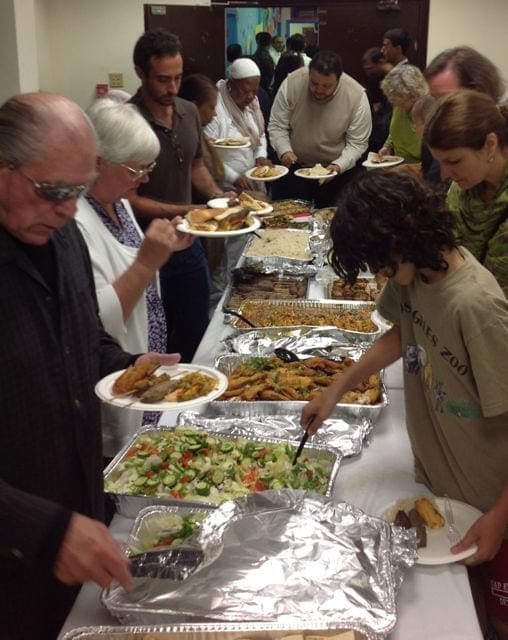
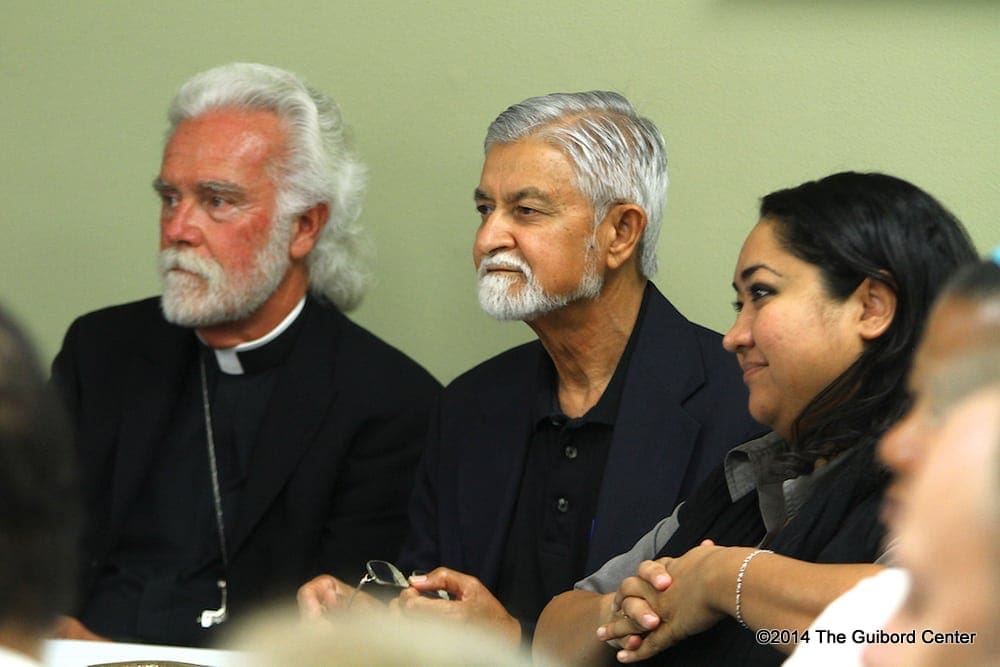
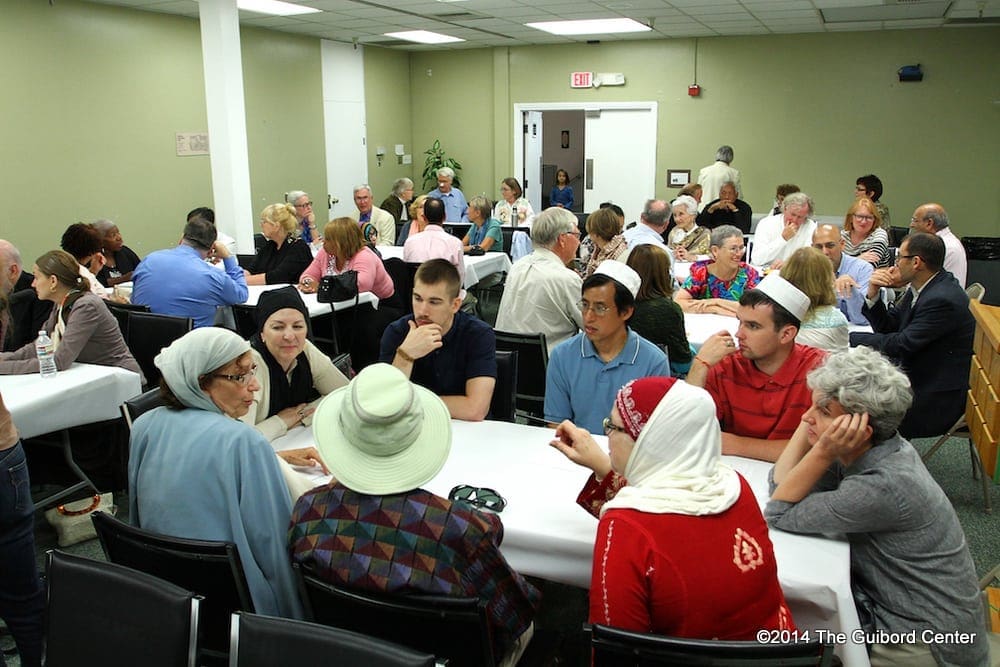
At our first Iftar a wonderfully diverse group of faith leaders gathered together to participate as guests of the Islamic Center of Southern California in their “Breaking of the Fast” or Iftar as part of the holy month of Ramadan.
Invited by The Guibord Center, the group included Buddhists and a Brahma Kumari, Sufis and Swamis, Roman Catholics, Episcopalians and other Christians and Jews along with many varied spiritually-minded and faithful people.
More than half of those in attendance had never stepped inside a mosque before. They were treated to an evening that all agreed will feed them in the deepest way for many years to come.
“Let us begin in the name of God, the Most Compassionate, the Most Merciful.” With these familiar and blessed words, Jihad Turk, the director for the Islamic Center for several years, offered his welcome and acknowledgement that the Islamic Center was thrilled to have the opportunity to share “the Breaking of the Fast” – the Iftar experience – in partnership and reciprocation for the many kindnesses and meaningful programs extended to them by The Guibord Center.
“It is important that we are together in times of great hardship and sorrow and, that we are also together in times of great joy…“
Ramadan is the high point of the Islamic calendar.
With gentle humor and touching faithfulness Jihad Turk began to open up for those gathered the very heart of the purpose and practice of Ramadan, this holiest of times for all faithful Muslims throughout the world. While a number of those in attendance expected to hear about rules, what they heard instead was about compassion and opening one’s self to God through connecting with the suffering of others.
He shared the few verses of the Qur’an that talk about fasting and explained that “in the Islamic tradition fasting means thirty days of no eating or drinking or having intimate relations with one’s spouse (or anyone else for that matter!) from an hour or hour and a half before the sun comes up until it sets. That is the minimum, that’s the foundation, the basis of what a fast is BUT as was emphasized by Mohammad, the Prophet of Islam, the moral leader,.. to have any animosity, or anger, or be engaged in gossip or any other kind of misconduct defeats the purpose of the fast.”
Speaking ill of someone behind their back is a great calamity, a great sin in the eyes of God.
“It is important for Muslims to take this month seriously in its comprehensive understanding or imperative to fast from food and drink to sensitize the heart and soul to the plight of those who are hungry, to the plight of those who are poor and who are indigent, who do not have access to water or food whenever they feel thirsty or hungry so that it makes us generous. In that sensitivity that one might develop in the heart as a consequence of fasting, the expectation is and the experience has been that when one has the right frame of mind, one develops great sensitivity of the heart to all issues of morality and injustice and oppression.”
“And so this month is a month of refinement of the soul, of developing a subtleness and suppleness of the heart to open the heart to receive guidance.”
…”God is communicating to each of us in a subtle way but sometimes our hearts are impervious to that communication because they have become hardened. This is a motif in the Qur’an talking about the heart and how it becomes hardened…”
“The idea is that in the effort that you make towards God, you are exercising your heart muscle and it is becoming stronger but in a somewhat paradoxical way it is becoming softer at the same time. It is becoming exercised in work so that it can perceive the communication that God is sending our way, the communication that helps us make righteous decisions.”
“The month of Ramadan is a month of fasting and of trying to grow in our subtlety and sophistication and grow from the essence of our being closer to God and closer to our fellow human beings in the process… It is a month of transformation of the heart…. It is a time of reconnecting to scripture…It is a time of community… of a spirit of generosity and giving.”
The guests of The Guibord Center certainly experienced that generosity. Jihad invited them to gather at tables to share with one another the places in each of their own hearts that responded to the invitation of Ramadan. Those engaged conversations only ended with The Call to Prayer that heralded the end of the fast with dates and a small potion of fruit. Everyone was invited to participate in the prayers by either joining in actively or by being respectful witnesses.
All then share in the meal and further conversation. There was plenty of time for questions and comments. And this part of the evening ended with the invitation to join in the program that began at nine each of the thirty nights of Ramadan that included readers reciting a thirtieth of the Qur’an in beautiful 7th century Arabic for an hour with the English translation on a screen, followed by a brief commentary, followed by the evening prayers with nearly another hour of additional prayers.
As one does without food and drink and intimate relations and instead immerses one’s self in prayer and scripture, the heart transforms and one moves closer to God and to others.
Those gathered left feeling blessed as well as fed.
